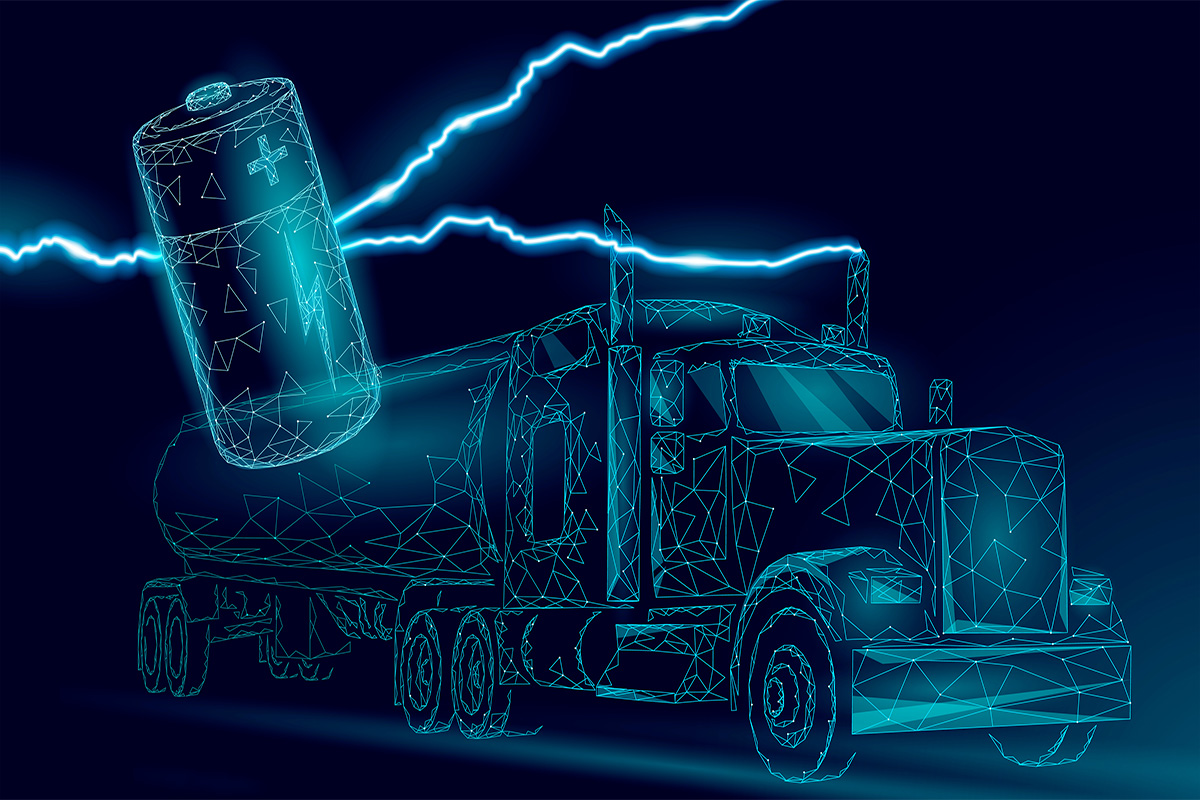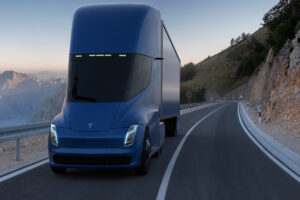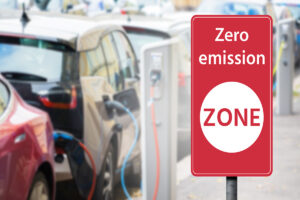March 29, 2024
What’s Happening with Electric Trucking?
Talk of electric trucks has been a hot topic since 2022 when we all thought diesel was old news and trucks would soon be driving themselves. The transition is taking longer than anticipated, and most trucks on the highway remain diesel-powered. But what strides has electric trucking made in recent years, and how close are we to seeing electric trucking as an everyday norm?
Has Electric Trucking Taken Over?
The Biden Administration’s push for zero-emission vehicles, including trucks, has increased electric truck sales over the last two years. Although the number of electric trucks has increased, diesel trucks still take the cake, with over 12 million trucks still active compared to almost 13,000.

Freightliner, Peterbilt, Volvo, and even Tesla were some manufacturers producing electric models. The Tesla semi-truck has gathered research about power, charge time, and what truck designs truckers like and don’t like.
Diesel engines may be more powerful, with the ability to pull heavier loads, fuel up quicker, and feature a distinct purring sound and rumbling vibration only those who have experienced their power can understand, but the push for a greener future continues to be electrified. The transportation sector makes up 29% of US greenhouse gas emissions, a quarter of which comes from medium—and heavy-duty trucks.
How Electric Trucking Is Still Happening
The fight for climate change and a pollution-free future is gaining momentum as the Environment Protection Agency releases new greenhouse gas standards for heavy-duty vehicles. The EPA announced today that its goal is to reduce greenhouse gas emissions by 1 billion tons, mainly from heavy-duty trucks, by setting emission standards for models between 2027-2032. Lowering carbon emissions will improve air quality in many communities, especially those along popular truck routes, and help reduce the effects of climate change.
The rule also aims to change the focus of the message that was centered around encouraging companies to go all-electric and is now instead adopting a broader campaign to encourage manufacturers and companies to consider any form of low-emission options like hybrid vehicles and hydrogen fuel cells to power trucks.
Continuing Concerns with Electric Trucking
The transition to a zero-emission trucking industry has been slower than anticipated. However, while some truckers are jumping behind the wheel without worrying about what’s under the hood, veteran drivers still have concerns about giving up diesel. Some issues, like the pulling power of non-diesel engines, are being addressed with more options than just battery electricity available.

Another primary concern surrounding alternative trucking engines is their ability to withstand harsh conditions. Driving in winter is taxing on any engine, and electric batteries usually fail to stand a chance, raising concerns for electric trucks. Extreme heat can also adversely affect batteries, making for a strenuous summer season. Electric trucks are also a concern because the batteries take longer to charge and don’t last as long as fueling up with gas. Hybrid and hydrogen power can help these issues, lasting longer than battery electric vehicles.
The goal is to reach net-zero carbon emissions by 2050, and the EPA will continue to push for changes until that goal is reached. Let’s hope all concerns and setbacks are addressed to avoid supply chain delays. Futuristic, smooth designs of electric trucks have yet to be favored by truckers, with many preferring the grand, sharp, powerful lines of old diesel designs. Sticking to old styles with new low-emission engines may help get veteran drivers on board.
Follow our blog for more trucking news and highlights, and check out our employment opportunities and requirements if you are interested in a trucking job.
Other Recommended Readings from our Blog:
Why Truckers Should Care About Earth Day


